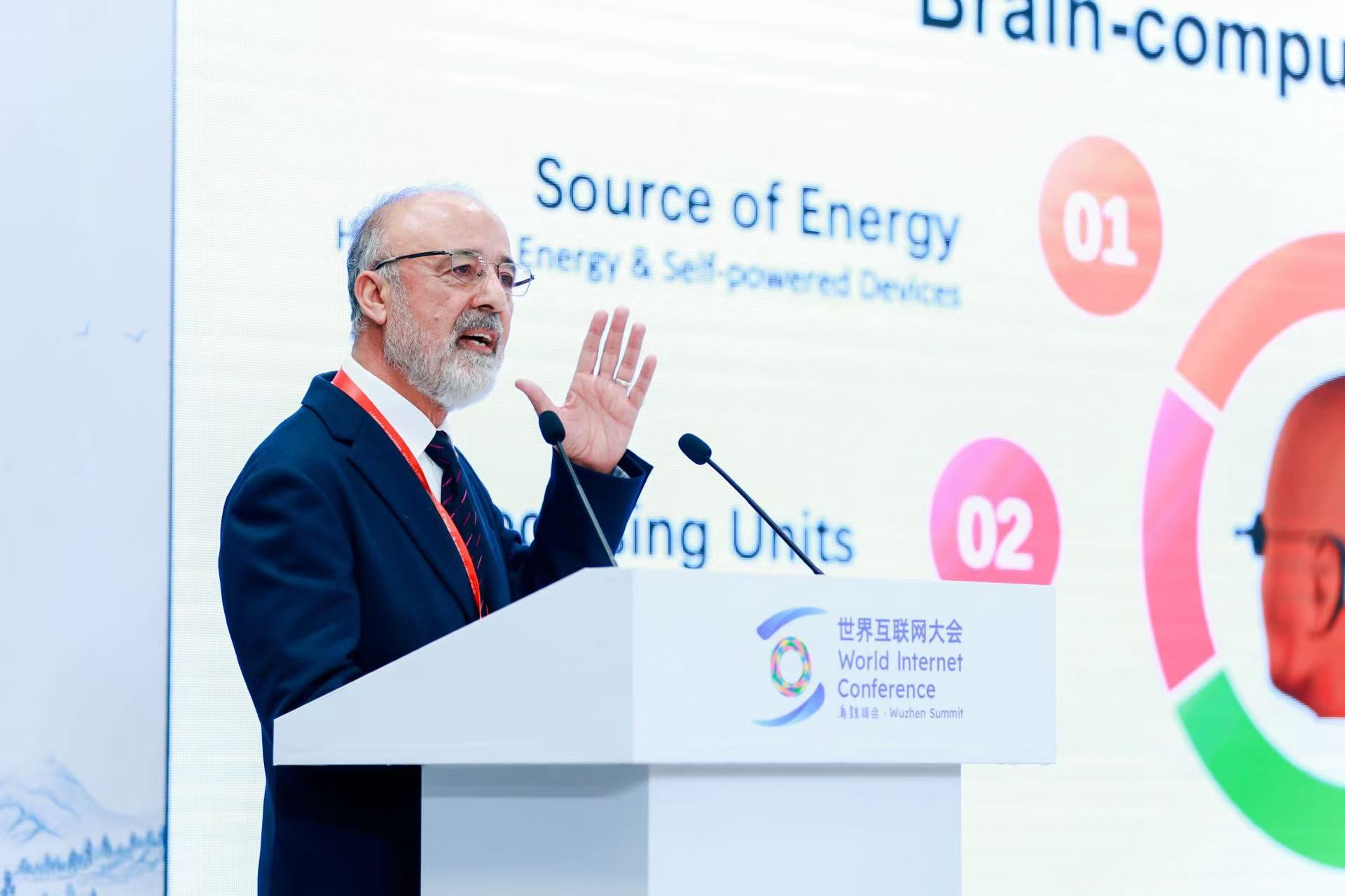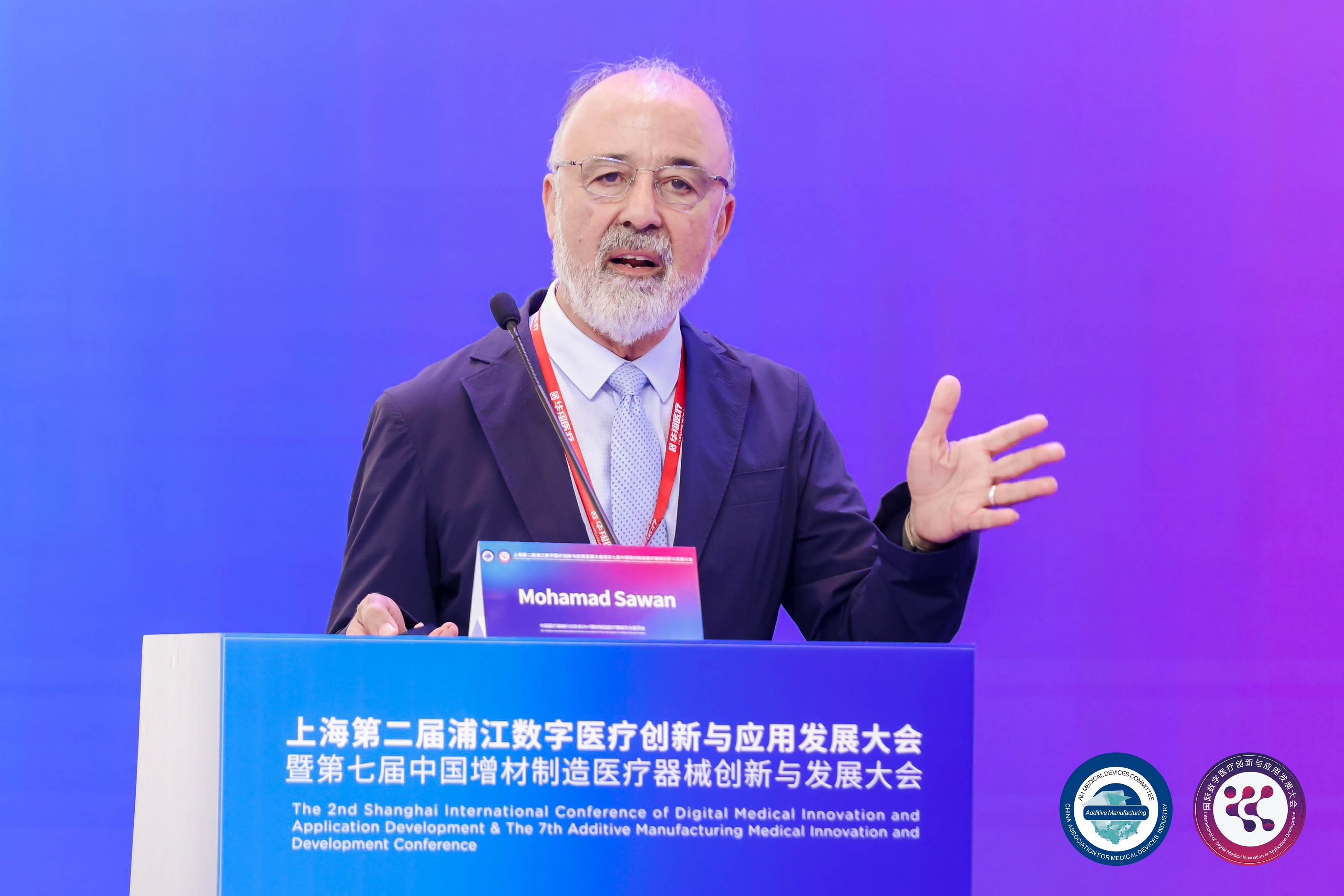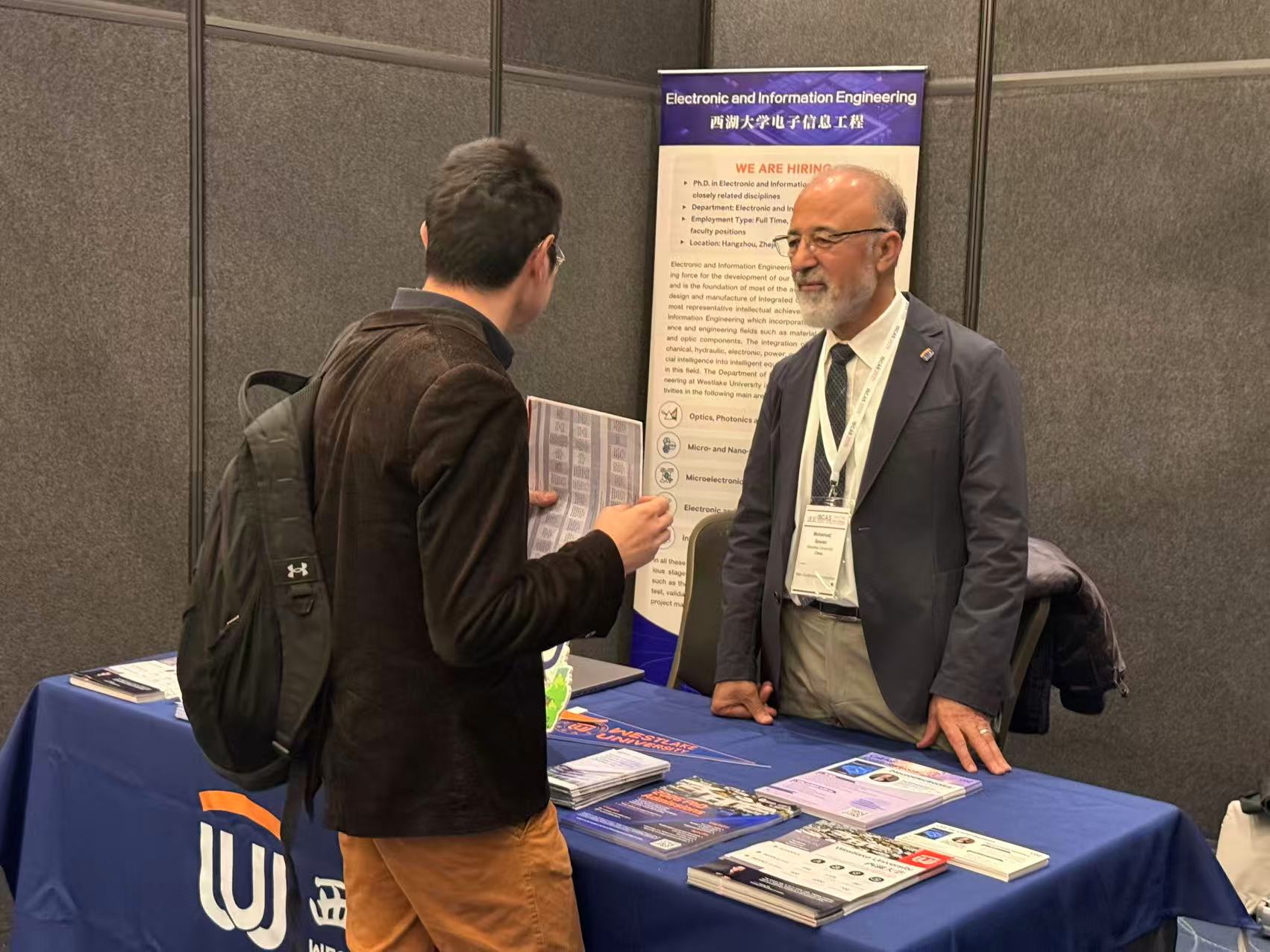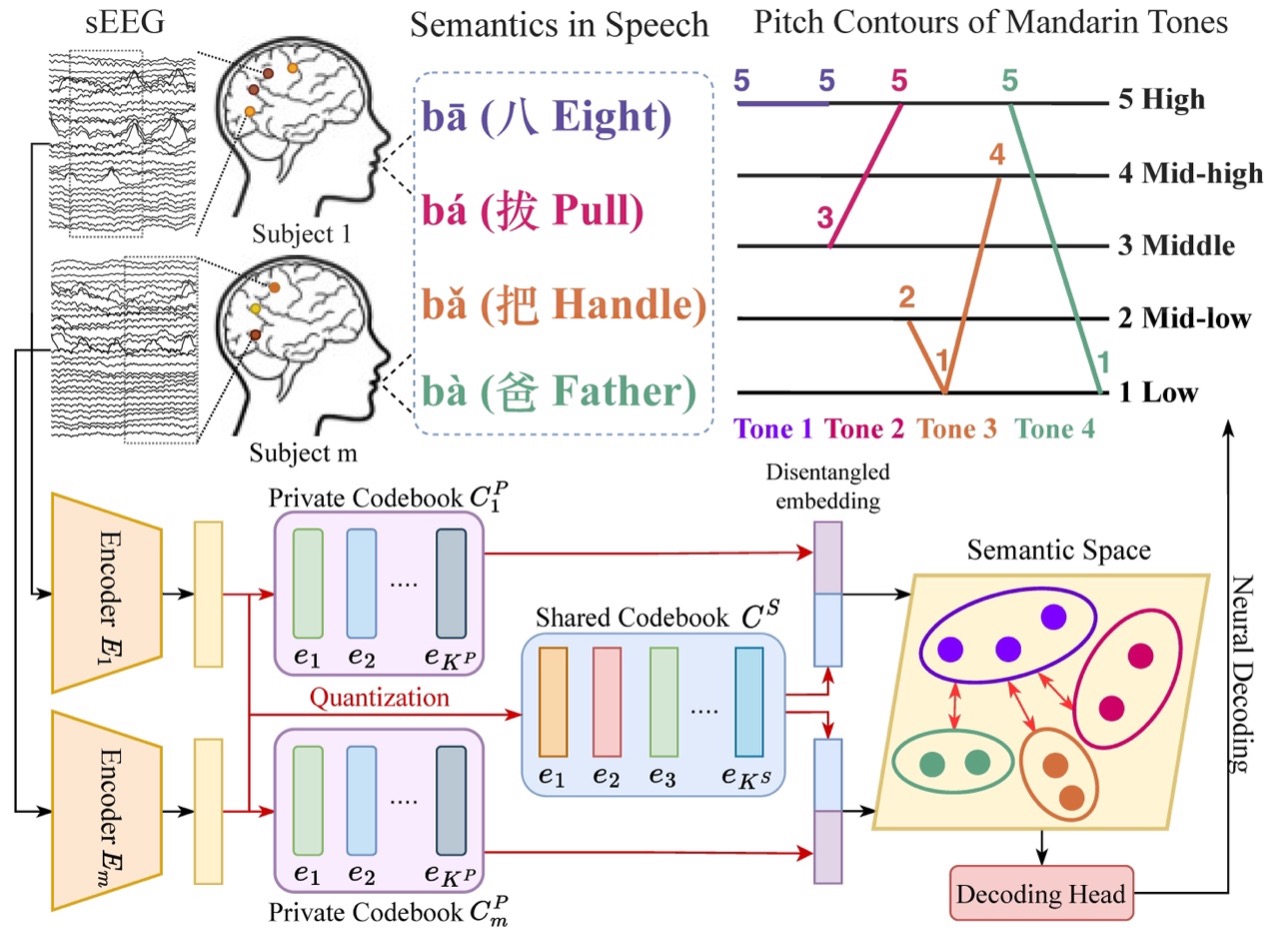
Fig.1: Congratulations to Chuanqing Wang on his successful Ph.D. dissertation defense, and thanks for Chair Professor Mohamad Sawan on his supervision of this thesis project.
Chuanqing said: "I really enjoyed my Ph.D. stage at CenBRAIN Neurotech, where I learned a lot of knowledge and grew a lot. Additionally, when I encountered difficult problems, you always patiently provided guidance, and when my research progressed smoothly, you encouraged me to challenge even bigger problems. I am very grateful for the platform and guidance provided by you. Many thanks to you, Prof. Sawan. "
On the Morning of May 28, a School of Engineering dissertation defense was held in the room E5-328, Westlake University. Chuanqing Wang, a Ph.D. candidate of CenBRAIN Neurotech Center of Excellence, successfully defended his doctoral dissertation having the title "A Bio-inspired Optogenetic-based Retinal Prosthesis to Enhance Patients’ Vision".


Professor Zhuo Zou from Fudan University was invited to be the chair of the defense committee, Professor Jiayi Zhang fromFudan University, Professor Hanjun Jiang from Tsinghua University, Professor Shurong Dong from Zhejiang University, Professor Lan Li and Professor Bowen Zhu from Westlake University were the members of the defense committee. Dr. Yun-Hsuan Chen, Research Assistant Professor in Westlake University, was the secretary of this evaluation committee. Several other members attended this defense.

Dr. Chuanqing Wang is interested in retinal prostheses that is intended to enhance vision in individuals suffering from retinal impairments such as Age-related Macular Degeneration (AMD) and Retinitis Pigmentosa (RP). During his PhD study at CenBRAIN Neurotech, he has published five papers as the first/co-first author in top-tier journals and conferences, including ICLR, JHBI (featured by Journal Cover), Nature Communications, and contributed as co-author to 5 other publications. Additionally, he has also applied for three Chinese patents and two of them are the object of US patents. Besides, Chuanqing was awarded national scholarship and would graduate as the outstanding Ph.D. graduate from Fudan University.
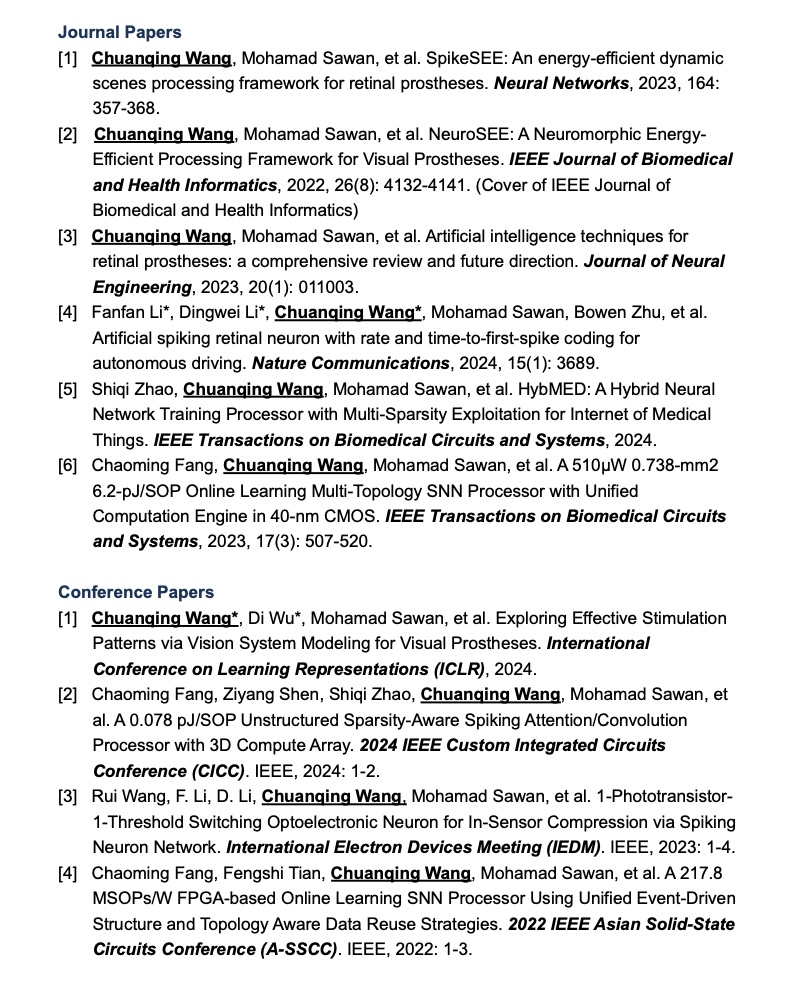
Currently, retinal prostheses are a promising treatment for late-stage retinal degenerative diseases. Chuanqing Wang's doctoral dissertation addresses the bottlenecks in the field of retinal prostheses, including limited visual restoration effects and the lack of effective experimental validation methods. His research focuses on key technologies across multiple levels, including algorithms, processing frameworks, and prosthetic systems for retinal prostheses, and has achieved the following results:
1. A biologically inspired spike recurrent neural network was proposed, achieving a Pearson correlation coefficient of up to 0.93 in modeling the response signals of retinal ganglion cells. This network can effectively optimize processing efficiency and computational power consumption.
2. An end-to-end stimulation pattern generation and verification framework suitable for retinal prostheses was proposed. This framework can predict stimulation patterns with high energy efficiency and introduces a biologically interpretable verification scheme.
3. A bio-inspired high-energy-efficiency retinal prosthesis based on optogenetics was proposed. This prosthesis uses technologies such as quantization compression, multi-level parallel processing, and low-power design with spike sparsity to improve energy efficiency, thereby achieving the functional reconstruction of signal processing for degenerated retina.
4. In-vitro ganglion cells experiments demonstrated that the retinal prosthesis could precisely modulate the action potential signals of ganglion cells.



